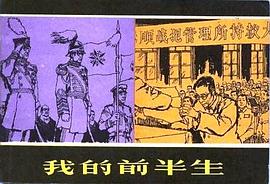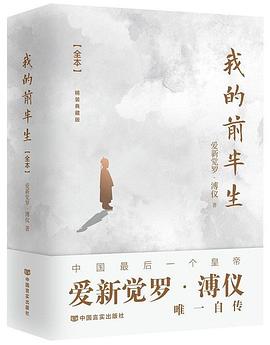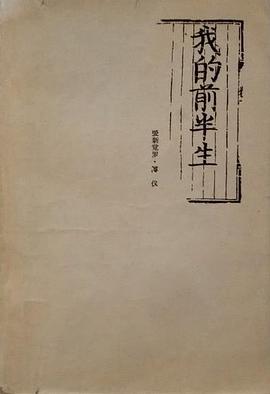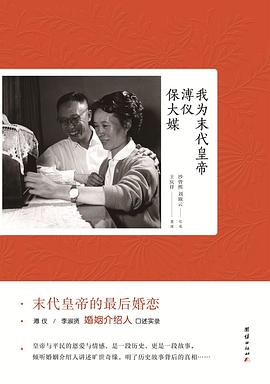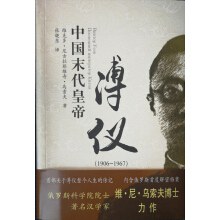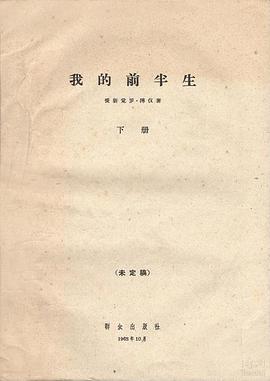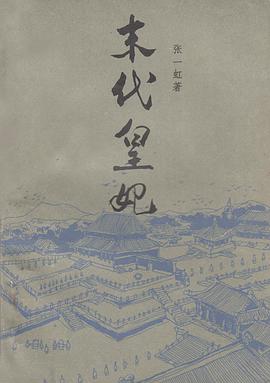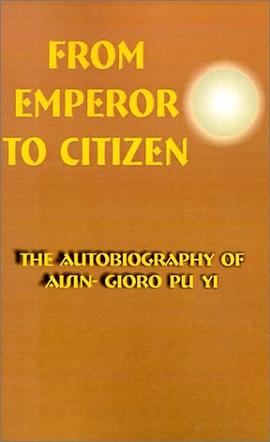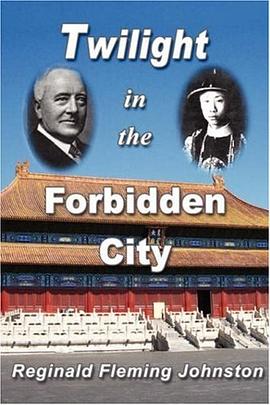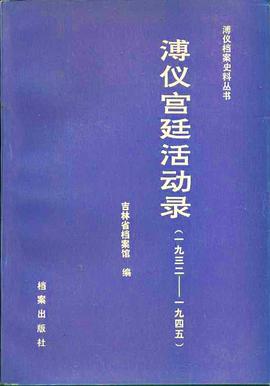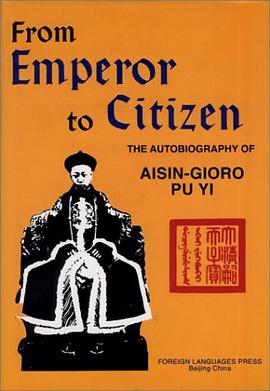

具體描述
From Emperor to Citien is the
autobiography of Pu Yi, the man who
was the last emperor of China. A
unique memoir of the first half of the
20th century as seen through the eyes
of one born to be an absolute
monarch, the book begins with the
author's vivid account of the last,
decadent days of the Ching Dynasty,
and closes with an introspective
self-portrait of the last Ching emperor
transformed into a retiring scholar
and citizen of the People's Republic
of China.
In detailing the events of the fifty
years between his ascension to the
throne and the final period of his life
as a quiet-living resident of Beijing,
Pu Yi reveals himself to be first and
foremost a survivor, caught up in the
torrent of global power struggles and
world conflict that played itself out
on the Asian continent through many
decades of violence and upheaval.
This firsthand description of the
dramatic events of Pu Yi's life was the
basis for the intemationally acclaimed
1987 Bemardo Bertolucci film The
Last Emperor which was named Best
Picture of the Year by the American
Academy of Motion Picture Arts and
Sciences. From Emperor to Citizen
readily lends itself to cinematic
adaptation as a personal narrative of
continuously significant and revea-
ling episodes.
Becoming emperor and then
forced to abdicate with the
establishment of the Republic of
China in 1911, all before he is seven
years old, Pu Yi continues to live in
the Forbidden City for another
decade, still treated as the Son of
Heaven by the moribund Ching court,
but in reality a virtual prisoner, with
little genuine human contact apart
from his beloved nurse Mrs. Wang,
his teacher Chen Pao-shen and his
English tutor Reginald Johnston.
When at the age of nineteen Pu Yi
is finally forced to vacate his isolated
existence within the Forbidden City,
he begins his long odyssey as the
dependent of the occupying imperial
Japanese regime, first in Tientsin, and
eventually installed as "emperor" of
the Japanese puppet state styled
Manchukuo in China's northeast
provinces. With the defeat of Japan
and the end of the Second World War,
Pu Yi faces a very uncertain future as
he is shunted off to Russia for five
years before retuming to a new China
transformed by revolution, where he
is confined in the Fushun War
Criminal Prison. Here he undergoes
several years of rehabilitation,
"learning how to become a human
being," as he calls it, before receiving
an official pardon and being allowed
to finally live as an ordinary citizen of
Beijing.
This autobiography is the culmi-
nation of a unique and remarkable
life, told simply, directly and frankly
by a man whose circumstances and
experiences were like no other.
著者簡介
圖書目錄
CHAPTER ONE MY FAMILY
My Grandfather Prince Chun
My Maternal Grandfather Jung Lu
Tzu Hsi's Decision
My Father's Regency
A Prince's Household
CHAPTER TWO CHILDHOOD
Accession and Abdication
Living as an Emperor
Mothers and Son
Studying in the Yu Ching Palace
Eunuchs
My Nurse
CHAPTER THREE FROM THE FORBIDDEN CITY TO
THEJAPANESE LEGATION
The Yuan Shih-kai Period
The Restoration of 1917
The Chiettains of the Peiyang Clique
Undying Hope
Reginald Johnston
My Wedding
Internal Clashes
The Dispersal of the Eunuchs
Reorganizing the Household Department
The Last Days in the Forbidden City
In the Northern Mansion
Decision at the Crossroads
CHAPTERFOUR TIENTSIN
The Efforts of Lo Chen-yu
My Relations with the Commanders of the Fengtien Clique
Semionov and the "Second Chukeh Liang"
The Affair of the Eastern Mausolea
Consulate, Garrison and Black Dragon Society
Life in the Temporary Palace
CHAPTERFIVE TO THE NORTHEAST
The Unquiet Qyiet Garden
Differences Among the Japanese
Meeting Doihara
The Secret Crossing of the Pai River
Isolated
Disappointment
Meeting Itagaki
CHAPTER SIX FOURTEEN YEARS OF
"MANCHUKUO"
The Puppet Play Begins
Majesty Without Power
The Signing of the Secret Treaty and After
The Report of the League of Nations Commission of Enquiry
"Emperor" for the Third Time
The End of Illusion
Yoshioka Yasunori
"Imperial Rescripts'
Home Life
The Collapse
CHAPTER SEVEN IN THE SOVIET UNION
Fear and Illusion
Still Giving Myself Airs
1 Refuse to Admit My Guilt
CHAPTER EIGHT FROM FEAR TO RECOGNIZING MY
GUILT
I Expect to Die
Arriving in Fushun
Separated from My Family
Move to Harbin
Writing My Autobiography and Presenting My Seals
Changes in My Household
Contession and Leniency
Making Boxes
The Investigators Arrive
The Suffermgs and Hatred of the People of the Northeast
"You Can Never Escape the Consequences of Your Sins"
CHAPTER NINE 1 ACCEPT REMOULDING
How Shall 1 Be a Man?
It Is Up to Me
Why So Magnanimous?
The Changes Explain Everything
Meeting Relations
The Japanese War Criminals
"The World's Glory"
Another Visit
Labour and Optimism
The Test
Special Pardon
A New Chapter
INDEX
· · · · · · (收起)
讀後感
我一直在想,溥仪到底有没有说真话。 这本书带有很强的传奇色彩,所以还是很吸引人的。但不得不说,溥仪的那些口号,那些批判,有着强烈的XX色彩。我们有理由相信,他在写作这本书的时候是处在某种压力之下,或者,带有自保的心理。 看溥仪这个人,本事没多少,但是非常善于权...
評分随便翻书,清逊宣统帝溥仪的回忆录《我的前半生》。最近国内出版了一个“全本”,厚厚的大开本,比我少年时看过的那本气派许多。虽然是“全本”,但写作于一个特殊年代的基本内容并无改变,依旧是虔诚的忏悔谢罪与对新社会的推崇膜拜,最大的变化或许是增加了不少照片。 其中有...
評分那天一混蛋学生到办公室来游荡,见我在看书,欲骚扰,遂打断我并翻看我书的封面。看后故意问道:“老师,你在看我的下半身哦?” 我白了他一眼,没理他。 他不服气,装作很懂的样子:“我知道,这是清代最后一位皇帝‘付’仪写的嘛。” 我说得亏你还晓得是清代的,没让我白教你...
評分 評分从开始看到最后,都是那种皇帝向新社会的愧疚和谢罪。 社会形态不是自己所能决定的,不要把扭曲的社会全算成自己的罪过吧。
用戶評價
北京書市淘的,大學時讀過中文版。舊書重讀似春潮,內容倒感覺像是新讀。最讓人春潮湧動的是在撫順,在哈爾濱監獄改造那段。飛龍不在天,也不再允許有飛龍的時候,方見人情,世味。但似乎又是昨日種種,都成今我的輪迴。不過終於還是remoulding過來瞭,thanks to magnanimousness。
评分1.17-4.7,疫情期間英語學習。《我的前半生》英譯本,潘傢園買的。沒看過中文原版。兼學英語和曆史。跌宕起伏,悲劇人生,以及重新做人。在後半部分,一直懷疑一個人真的能被改造嗎?如果是真的,那我黨思想改造的本事太大瞭。如果是真的,那最後兩節讓人感動得想流淚——特赦和迴到北京,以及那個最後纔揭露的真相。
评分1.17-4.7,疫情期間英語學習。《我的前半生》英譯本,潘傢園買的。沒看過中文原版。兼學英語和曆史。跌宕起伏,悲劇人生,以及重新做人。在後半部分,一直懷疑一個人真的能被改造嗎?如果是真的,那我黨思想改造的本事太大瞭。如果是真的,那最後兩節讓人感動得想流淚——特赦和迴到北京,以及那個最後纔揭露的真相。
评分不知饞瞭多少水份:)
评分1.17-4.7,疫情期間英語學習。《我的前半生》英譯本,潘傢園買的。沒看過中文原版。兼學英語和曆史。跌宕起伏,悲劇人生,以及重新做人。在後半部分,一直懷疑一個人真的能被改造嗎?如果是真的,那我黨思想改造的本事太大瞭。如果是真的,那最後兩節讓人感動得想流淚——特赦和迴到北京,以及那個最後纔揭露的真相。
相關圖書
本站所有內容均為互聯網搜索引擎提供的公開搜索信息,本站不存儲任何數據與內容,任何內容與數據均與本站無關,如有需要請聯繫相關搜索引擎包括但不限於百度,google,bing,sogou 等
© 2025 book.quotespace.org All Rights Reserved. 小美書屋 版权所有

